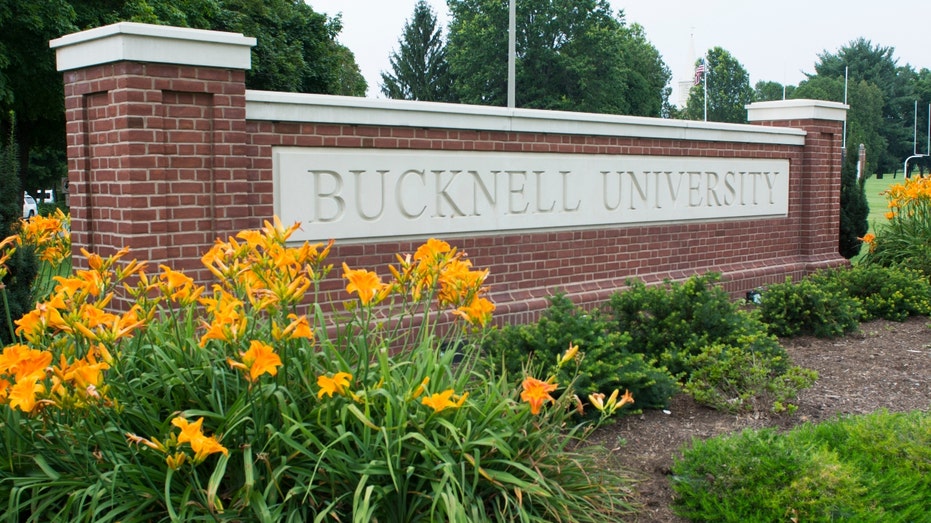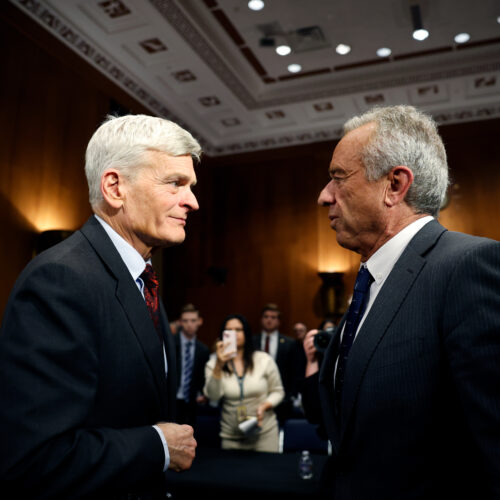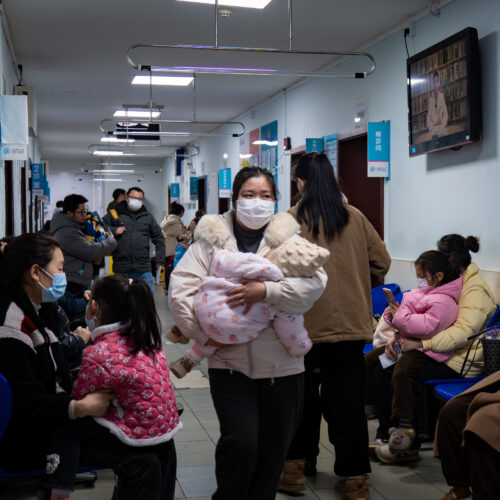What You Learned About Cell Division Is Probably Wrong
A new study challenges a widely-held and widely-taught notion about mitosis.


The parents of Calvin "CJ" Dickey Jr. filed a lawsuit against Bucknell University on Wednesday, nearly a year after the 18-year-old died after collapsing during his first-ever football practice with the team over the summer.
Mike Caspino, the attorney representing the family, announced the lawsuit during a press conference, alongside Dickey’s parents.
"He was a superb athlete. He was a great student and an unbelievable human being. And on July 12, 2024, he died a very painful, very brutal death because of the football coaches at Bucknell University," Caspino said.
CLICK HERE FOR MORE SPORTS COVERAGE ON FOXNEWS.COM
"Despite the fact that CJ Dickey died nearly nine months ago, the school has withheld – is not telling his parents the circumstances and the facts around why he died. They refuse to tell them the story about how their son died. … They are hiding what happened, and we are forced to file this lawsuit so that we can find out the truth."
According to Caspino, Dickey died from rhabdomyolysis, which is a rare and life-threatening muscle condition triggered by intense workouts. He was more likely to suffer from the condition after previously being diagnosed with sickle cell trait, something the lawsuit alleges Bucknell was aware of before Dickey began training camp.
The lawsuit, obtained by ESPN, claimed that Dickey performed 100 up-downs on July 9 "as punishment" after the team "messed up" at a workout and that players performing the drill noticed him "falling behind the rest of the group."
According to ESPN’s previous reporting, Dickey collapsed and was transferred to a hospital where he was put on dialysis. He underwent emergency surgery to relieve pressure in his extremities, but his heart stopped and he died two days after the incident.
"He died a horrible, painful death that was 100% preventable," Caspino said Wednesday.
In a statement to several outlets, Bucknell called Dickey's death "a tragic loss" but would not comment further due to pending litigation.
"The death of a student is always a tragic loss. While the University will not comment on pending litigation, we again extend heartfelt sympathies to CJ's family, and we will continue to focus on our most important priority -- the health and safety of all Bucknell students."
According to the NCAA policy, all athletes are required to undergo sickle cell solubility testing or provide results from a test within six months of participating in sports activities. In Dickey’s case, the lawsuit alleged that he tested positive and that a trainer from Bucknell spoke to his mother prior to the incident on July 12.
The lawsuit accused the university and others of negligence and is seeking compensation and information surrounding Dickey’s death.
Follow Fox News Digital’s sports coverage on X, and subscribe to the Fox News Sports Huddle newsletter.




The US Senate on Thursday confirmed the long-time anti-vaccine advocate Robert F. Kennedy Jr. as Secretary of Health and Human Services.
The vote was largely along party lines, with a tally of 52 to 48. Sen. Mitch McConnell (R–Ky.), a polio survivor and steadfast supporter of vaccines, voted against the confirmation, the only Republican to do so.
Before the vote, Minority Leader Charles Schumer (D–N.Y.) claimed that if there had been a secret ballot today, most Republicans would have voted against Kennedy. "But sadly, and unfortunately for America, Republicans are being strong-armed by Donald Trump and will end up holding their nose and voting to confirm Mr. Kennedy... What a travesty," Schumer said.


© Getty | Kevin Dietsch



There's a good chance you've seen headlines about HMPV recently, with some touting "what you need to know" about the virus, aka human metapneumovirus. The answer is: not much.
It's a common, usually mild respiratory virus that circulates every year, blending into the throng of other seasonal respiratory illnesses that are often indistinguishable from one another. (The pack includes influenza virus, respiratory syncytial virus (RSV), adenovirus, parainfluenza virus, common human coronaviruses, bocavirus, rhinovirus, enteroviruses, and Mycoplasma pneumoniae, among others.) HMPV is in the same family of viruses as RSV.
As one viral disease epidemiologist at the US Centers for Disease Control summarized in 2016, it's usually "clinically indistinguishable" from other bog-standard respiratory illnesses, like seasonal flu, that cause cough, fever, and nasal congestion. For most, the infection is crummy but not worth a visit to a doctor. As such, testing for it is limited. But, like other common respiratory infections, it can be dangerous for children under age 5, older adults, and those with compromised immune systems. It was first identified in 2001, but it has likely been circulating since at least 1958.


© Getty | Li Hongbo
